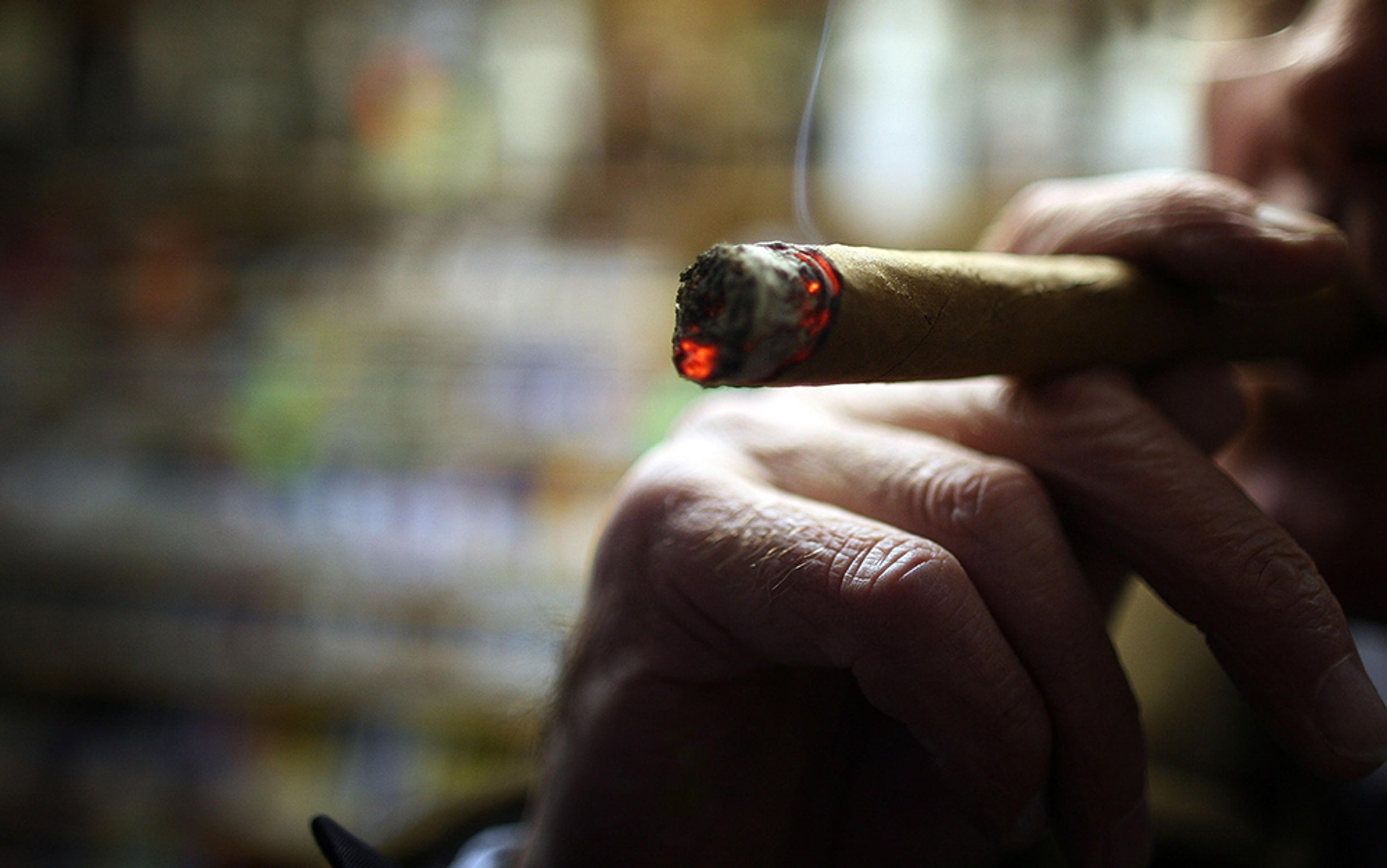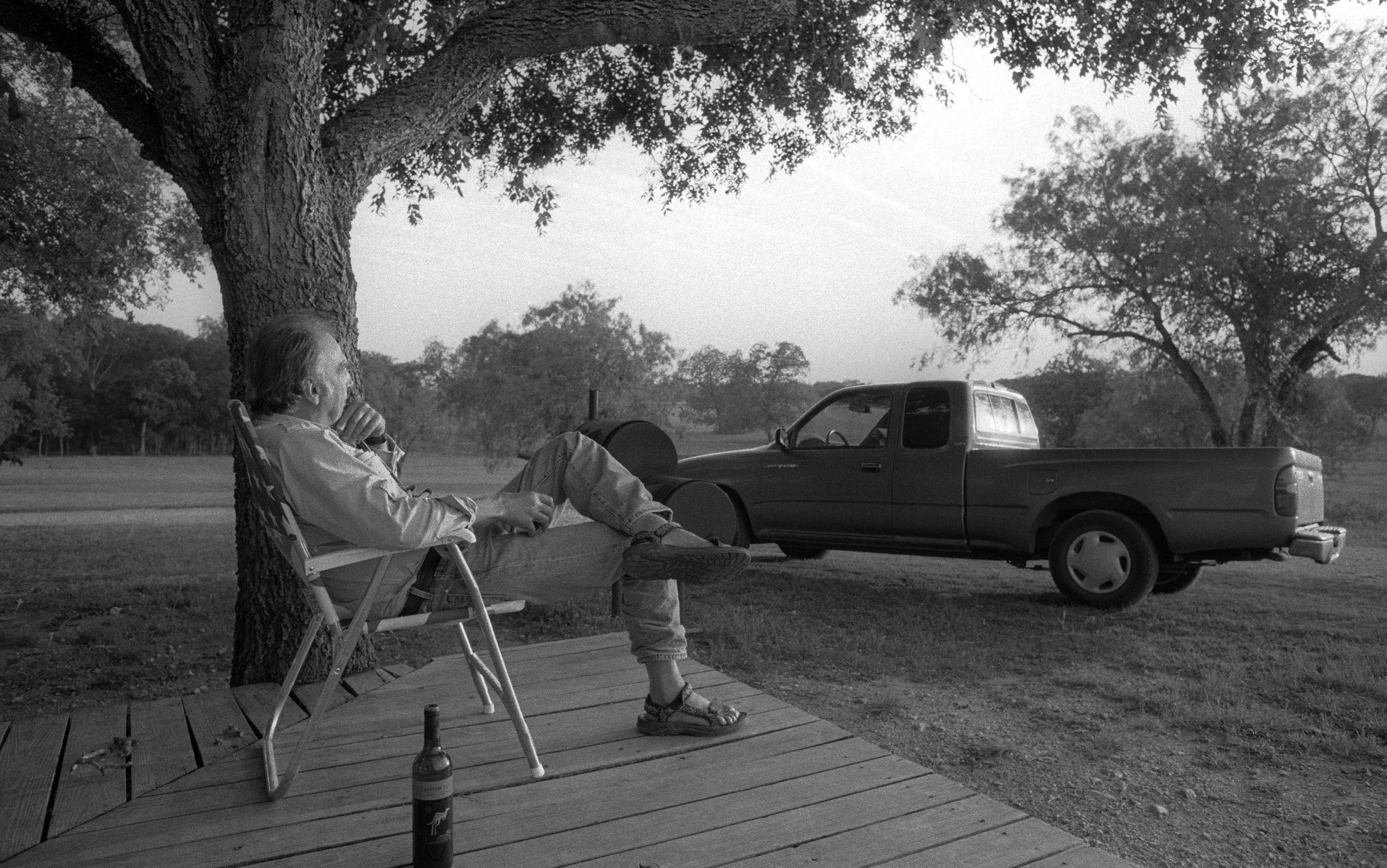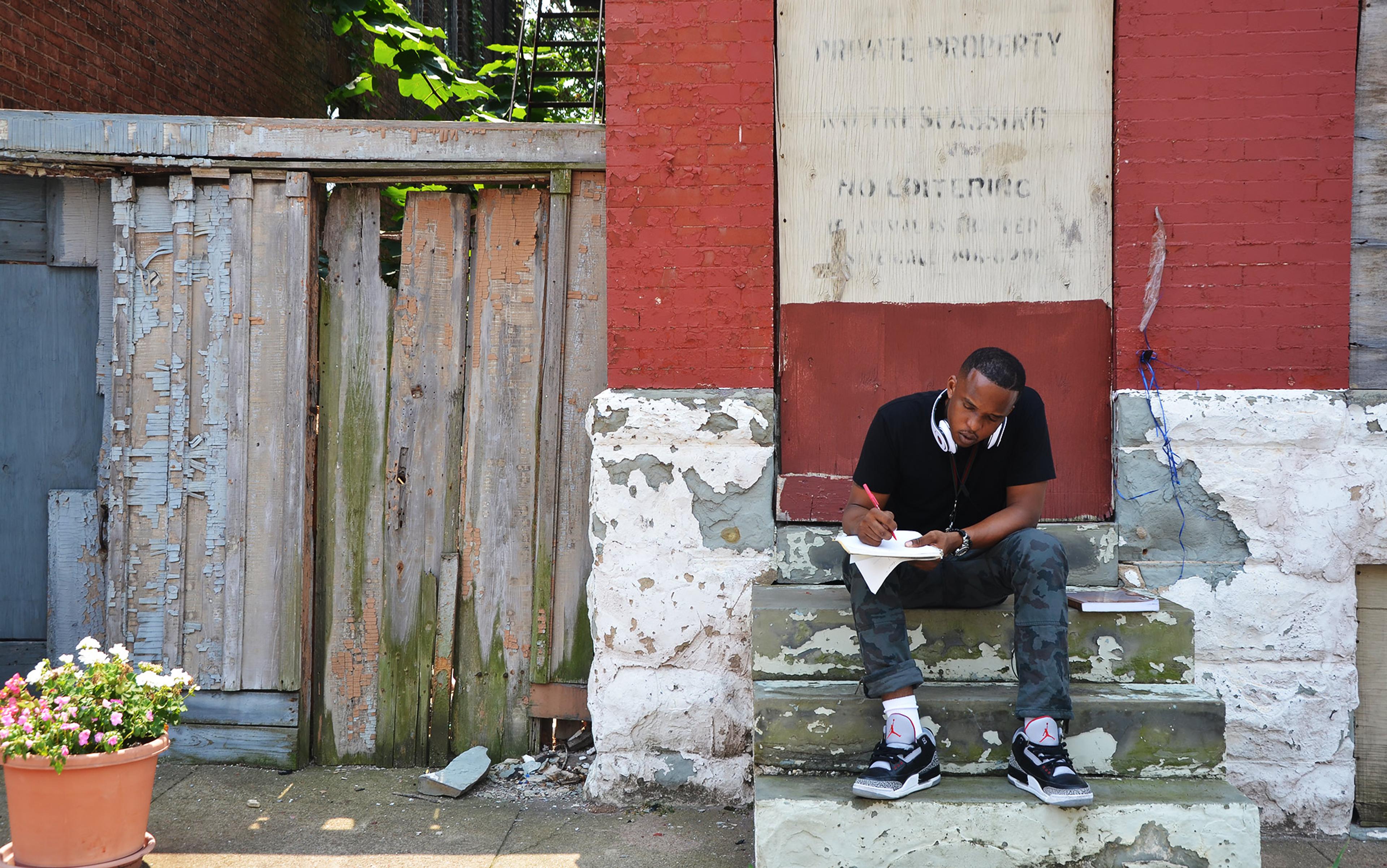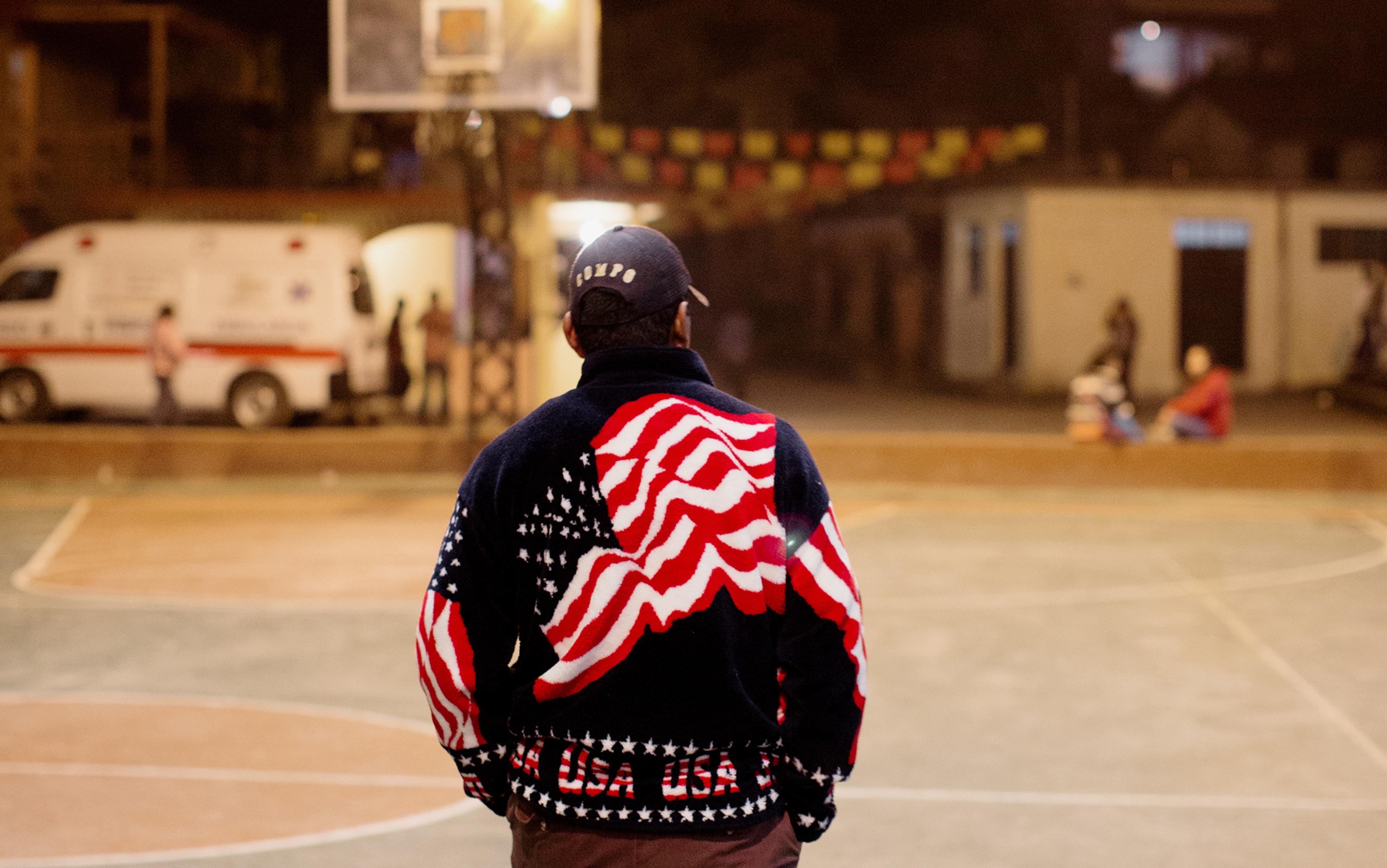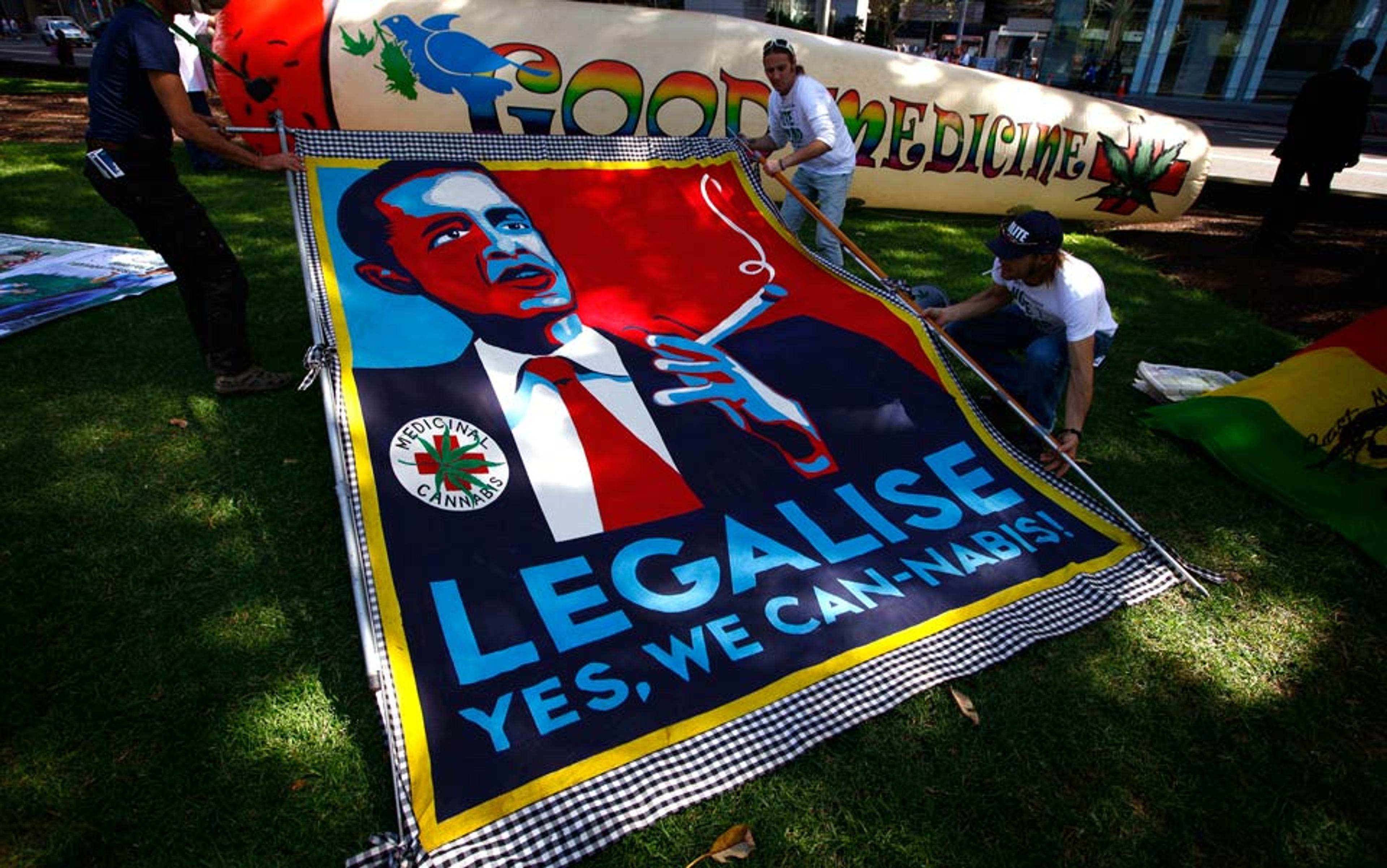In New York City, smoking is banned in almost all indoor businesses. One notable exception is the cigar bar. For men, especially, these are good places to kick back and puff in company. They’re a rare sanctuary where guys can be more themselves than they are anywhere else.
My brother-in-law Alan is a regular at the Cigar Inn, an elegant but comfortable cigar bar in the East 50s of Manhattan. It’s his home away from home. Not that his actual home is far away. He recently moved to Sutton Place nearby. He can drop anchor almost anytime he wants at the Cigar Inn with just a few blocks walk or on the way home from work. As an estate attorney, he’s often there weekday evenings still wearing a suit. On weekends he’s more likely slumming it in jeans and a hoodie. Day after day, year after year, he spends the happiest hours of his life with these men – most often the same nine or 10 regulars. They have become inseparable friends and one another’s most important support system.
I’ve known Alan since 1980, when I started seeing his sister, to whom I’ve now been married 33 years. I thought I had a handle on him – a serious-minded man with a touch of world-weariness who always had sideline schemes for making a buck. He was close to his two sons, devoted to his mother, and faithful to his wife (and subsequent girlfriends, once he divorced her to save his sanity). He was low-key, unaffected, undemonstrative, a quiet, private guy.
That version of Alan is nowhere in evidence at the Cigar Inn. With his smoking buddies, he’s someone I’ve never known.
I got a glimmer of this other Alan the first time I walked into the Cigar Inn. When my wife and I dropped by, he introduced us all around proudly to his pals, who leapt to their feet to shake our hands. And Alan, more content than I’d ever seen him, beamed, completely in his element. It turned out that he introduced new guys to the group all the time, making them feel welcome. ‘Quiet, private Alan’ was essentially the social director.
It was such a blur of friendliness that almost none of their names stuck in my head, but one who did stand out they called Johnny Dogs. He was a dog walker by trade, revered for finding abandoned mutts on the streets and taking them home.
That night he was in a mood. A skinny little dude with a high, nasal voice, he began to whine, ‘I want that scale. You can’t keep my money.’
The angrier Johnny got, the harder they had to fight to stifle laughter
‘I’m not giving you that kind of cash,’ Alan answered. ‘I’m not helping you go broke.’ Alan (an estate attorney, remember) could indeed keep Johnny’s money. Johnny had given him control of a trust left by his parents for safekeeping. Johnny, see, was sick with AIDS. He couldn’t work regularly, and tended to blow his money on the silliest indiscriminate crap. He’d finally done one sane thing with it – given it to Alan, so that Alan could dole it out parsimoniously for things that mattered. The idea was to help Johnny survive, despite himself. The scale he wanted was the kind doctors have in their offices, well over $1,000.
‘I’ll give you mine,’ said Alan. ‘It tells your weight. That’s all anybody needs.’
‘I don’t want your scale!’ snarled Johnny. ‘I want that scale.’
Now the guys chimed in. ‘Would you shut the fuck up?’ someone barked. ‘He’s trying to help, you moron!’ offered someone else. So went the chorus. The angrier Johnny got, the harder they had to fight to stifle laughter.
Alan closed the matter. ‘Look,’ he said. ‘I’m not giving you $1,000 for anything so stupid, or in a few years, you’ll have nothing. So drop it.’
That was the only time I ever saw Johnny. As it turned out, he wouldn’t need money years down the road. He developed an infection, and with no T cells to fight it, he was dead within days. When I learned this, I wondered if Alan regretted refusing Johnny his last ridiculous wish.
But he and the guys were there for him while he was alive. They were about as motley a crew as you could find – men’s men like teamsters, ex-cops, and a bodyguard on the one hand, and on the other, a gay dog-walker, a mild-mannered marketing millionaire, realtors, an estate attorney, and a fireman who was also a yoga instructor. Somehow, they were all just peas in a pod.
‘Men normally want to hang out with men who have the same level of masculinity, but in groups they can try on more sides of themselves. There’s safety in numbers,’ explains Geoffrey Greif, a professor at the University of Maryland School of Social Work and author of Buddy System: Understanding Male Friendships. ‘It’s the comfort of having a posse and more support.’
It’s not just the macho and the effeminate drawn together. You see the rich with the working class, the cultured with the rough-hewn. ‘There’s an energy that everybody is accepted here,’ says firefighter/yogi Marc. ‘People from different walks of life coming together over a common cause.’
Most of the regulars talk a very good show. They’re gifted raconteurs who have lived story-worthy lives
The common cause, in this case puffing Dominicans or Cubans, seems to be what distinguishes male from female friendships. Women don’t need an excuse to get together; getting together is the point. For men, typically, there’s an activity at the centre – it could be tennis or golf. Irene Levine, a clinical professor of psychiatry at New York University and author of Best Friends Forever, a book on female friendship, calls this difference ‘face to face’ vs. ‘side to side’. Women exchange intimacies while men share activities.
But by these rules, men smoking in a group are gender-bending: metaphorically and physically, they’re gathering both side-to-side and face-to-face. Yes, the cigar’s the thing, and much pleasure is derived from the rituals and techniques of choosing a cigar, smelling its bouquet, lopping off the tip, lighting up and sucking in that first draw. After that, the most taxing thing you have to do is flick ash (and if you don’t want to stick out, there’s some art to that). But what more is there? Why, talk, of course. You’re not casting for marlin together off the back of a boat here; you’re not hiking the Appalachian Trail. You’re talking. Even if a football game is on, it’s on mute. You supply the narration and commentary. It’s your own voice and the voices of your pals you want to hear.
Understandably, most of the regulars in Alan’s group talk a very good show. They’re gifted bullshitters and raconteurs who have lived story-worthy lives and know how to talk about them for maximum entertainment value. They practise this craft night after night in this very room, their ring of little fires amounting to one big campfire where they tell their tales. They smoke and they talk, they talk and they smoke. It turns out that if you do these two things together long enough, sitting with the same group of guys year after year, you come to know them as well as anyone on earth.
When you enter the Cigar Inn, you immediately see the magnificence: polished wood panelling, stained wood floors, leather chairs and couches, deep Persian rugs, marble-top ashtray tables. Along both side walls, glass cases display top-shelf smoking paraphernalia, such as Manning humidors, stainless steel double guillotine cigar cutters, and blue-flamed, butane blowtorch lighters.
The store extends back about half a football field, past a wine-cellar-sized walk-in cigar room, past an ornate tonsorial parlor with swivelling leather chairs and an old-fashioned, two-seat, elevated shoeshine stand. Finally, you reach a vast room with a fireplace, seating dozens, like the central room of a ski lodge. The back wall is mostly glass, with a garden view. It all throbs with privilege, luxe and ease, a complete time out from everything it took to earn this respite.
On a Sunday afternoon in the middle of the NFL playoffs, with a Wild Card game beaming down from large flat-screen TVs mounted near the rafters, the boys are in their usual spot in an alcove at the front. They are so much an institution here that when an artist was assigned to paint murals memorialising the bar’s clientele, several of them were immortalised. One was their universally acknowledged leader Ron, appropriately dubbed Alpha Dog. A mustachioed, broad-backed former New York City detective once assigned to then Manhattan DA Robert Morgenthau’s office, he still wears a holster gun. A two-hitch Vietnam vet paratrooper, he now runs a security consulting business with his partner Joe, another member of Alan’s cigar fraternity.
Needless to say, Ron and Joe met many years ago at a cigar bar. Paradoxically laconic, Joe is a well-travelled linguistic genius born in Azerbaijan who is fluent in half a dozen languages.
‘He may be quiet, but he’s bright as shit,’ says Ron, in a rare moment of unadulterated respect.
Ron is normally a little scary to listen to. An unrelentingly hardass wit, he can wield mockery and sarcasm like a billy club. He’s got devastating wisecracks sizing up everybody, and his amigos affectionately call his preferred seat ‘the throne of hatred’. Talking about one of the group members, a diminutive, older white-haired fellow the guys call ‘Millionaire Mark’, Ron says he’s ‘living proof that you can make 30 million dollars and know jack’. He warns me that another guy is a mute, but after I have a nice conversation with the man, he responds, ‘You got more out of him than I want out of him.’ When I mention the recently departed Johnny’s legendary love of dogs, he says, ‘He loved dogs, but his favourite subject was cock.’
Alpha Dog’s slash and burn verbal dexterity is a terrific skill to have if you’re going to carve a leader’s niche for yourself among guys at a cigar bar, where the best talker wins. The guys are drawn to his flame: they gather as a group mainly when he’s in town.
A girlfriend of Alan’s, who wanted him around more, complained that he was ‘never far from the mother ship’
Ron and the crew seem to know everything about one another. That happens when you spend so many weekday nights in the cigar bar together, so many tippling Saturday nights and so many Sundays, especially during football season. The group also holds an annual Italian restaurant feast together and travels together over many vacations (often to cigar bars in other states).
Understandably, the amount of time they spend together, their powerful connections, and their ‘what happens in cigar bar stays in cigar bar’ mentality can wreak havoc on home and hearth. A girlfriend of Alan’s, who wanted him around more, complained that he was ‘never far from the mother ship’. Sean, a strapping ex-cop turned teamster with Hollywood good looks, has had plenty of girlfriends, but never one he was in love with, and he’s always preferred to spend Saturday night with the guys. ‘I work long hours all week,’ he says, ‘but I’d like to be here all the time.’
There are many reasons having nothing to do with sexuality that a group of men may prefer one another’s company to that of women. It could be something as simple as just watching a game. Greif explains: ‘Sometimes it’s a way to escape being with women and the interpersonal tugs they put on their lives. Here, at least for a while, they don’t need to talk about their crumbling marriage, though the guys are there for that if needed.’
And the pull of renegade camaraderie is fierce. Maybe the guy can’t smoke in his own home; his wife won’t let him. In fact, it’s hard to find anywhere to do it. It’s isolating. ‘It’s a specific behaviour that is hard to find a place for, but here, all the guys get to do it together; they’re spitting in the eye of society’s rules together,’ says Greif.
Perhaps the most seductive lures are the intimate knowledge they have of one another and the private language they have created to express it. To my untutored ear, they appear to rip one another constantly, and it’s unsettling to me, which is perhaps part of the point: they get it, and I, the outsider, don’t. It’s like towel-snapping in the showers after a team victory. It’s their coded expression of insider knowledge and love.
‘You learn the boundaries of what’s appropriate or not, when to talk or shut up, what to say,’ Alan explains. ‘99 per cent of the stuff is said in jest, and people catch on quickly with it. It’s just emotional IQ.’
That afternoon, Millionaire Mark goes to the john. Immediately, they start taking potshots at him. Patty, a funny cop who has done standup at Caroline’s and other New York comedy venues, starts by singing the munchkin song, a reference to Mark’s short stature. Then Alan leads the charge. ‘Did you know that Mark thought Inglorious Basterds was real? Man, he’s the stupidest Jew I’ve ever known! He doesn’t know what Mensa is. Hell, he doesn’t know what IQ is!’
‘Bullshit,’ says Ron, and the next moment, they’re all taking bets on whether Mark will know what IQ stands for. When Mark comes back, he answers simply, ‘intelligence quotient’. Alan jumps out of his chair laughing and runs over to Mark, putting his arm around him. ‘I knew you’d know it! We Jews have to stick together!’
‘Alan called you an imbecile!’ the others scream. ‘He called you a moron!’
‘Ganging up on the Jews, like usual,’ says Alan, his arm still around Mark.
‘Ah, you’re a fake fuckin’ Jew,’ says Ron.
And a good time was had by all.
This smoking circle has created its own little society, with its own rules. Like the Masons or the Elks, they have their own arcane bylaws. Most obviously, you should buy at least one cigar every time you come in, even if you bring your own; and if you do bring your own, it’s good to share them. You should also bring in booze from time to time to be a sport, and not just any booze. No rotgut whiskey invades this circle. The group’s drink of choice is Oban Scotch, an aged, pricey Highland malt with a rich and smoky ‘nose’.
But these bits of etiquette are the tip of a more complex iceberg. For example, on this first day I spend with the guys, Alan and Alpha Dog are seated at either end of the sofa, which has room for three, but when I take a step to sit between them, Alan wags his finger. ‘That’s not done,’ he says. He doesn’t explain why, it’s just understood.
Since talking is the most important activity (with cigars the prop and rationale), the most intricate and esoteric rules surround its content, style and form. For starters, in the interest of preserving fraternity and equality, it’s best not to blow your horn about money. Tread lightly or not at all into religion and politics. Sports are safer, and with the playoff game on that day, the most heated discussion involves supporting Peyton Manning or Tom Brady as the greater all-time quarterback. Their favourite subject, however, is themselves, starting with the names they bestow on one another.
Patty, who of course was born Patrick, acquired his nickname long ago. Sean hung the moniker Schlitzie on Alan, thinking he resembled the pinhead in Tod Browning’s Freaks (1932). And fireman-yogi Marc was dubbed Meshugenah (Shug or Shuggie for short) by Ron, who pegged him as a flake the first time Marc sat down with them, wearing a skullcap and an overcoat and offering people blueberries.
The nicknames are like club memberships, and I get mine on a drunken Saturday night well into a bottle of Oban, which I bring as a peace offering because I’ve arrived hours late to interview Sean. Though the bottle is much appreciated, it doesn’t stop him from tearing me a new one for being ‘a tad unprofessional’. Somehow, I appreciate the dressing-down from one of the group’s elders.
That night, as the Oban works its magic, Sean tells me one rollicking tale after the next about his old days as a cop, like the time he came across a gang of Crips with a bag of weed, and instead of running them in, he simply ran them: he made them run and do pushups and run again until they were about to collapse, telling them whoever lost would go to jail. Then he let them all go. He tells me more civilised stories about his current teamster work driving TV stars to and from their sets, and about his unofficial second job as the group’s shameless practical joker, who punks his cigar buddies at every chance. Once, at the airport on a group trip to New Mexico, he had Johnny Dogs paged on the loudspeaker to a gate clear across the airport. When Johnny arrived at the gate, no one there had a clue why he’d been paged, and he had to hotfoot it back across the airport. Another time, Sean used Alan’s phone to text another group member named Rob, a massive African-American who has served as a bodyguard to Mariah Carey. The message, which read ‘I find you very attractive’, caused quite a stir.
A sober, responsible, punctual fellow on the job, Sean is entertainingly nuts at the cigar bar. Pouring the booze non-stop (peach brandy gets added at some point), he finally gives me the ultimate honour – a nickname. Because he thinks I look like the main character in Boardwalk Empire, I am now Nucky Thompson. Every time I show up at the Cigar Inn, the guys chime it in unison: ‘Nucky!’ ‘Yo, Nuck!’ ‘The Nuck Man’s here!’
If this structure represents a family, Alpha Dog and Sean might respectively represent a highly masculinised father and the rambunctious brother
One day at home, I receive a phone call out of the blue. When I answer, the caller hurls a barrage of vicious four-letter insults and threats at me. Shocked, I say, ‘I think you’ve got the wrong number.’ I hear him turn away from the phone and announce, ‘He says I have the wrong number.’ That’s when I recognise Alpha Dog’s voice, and I realise he’s in the cigar bar laughing his ass off with the rest of the guys. It was Sean, of course, who put him up to it.
Sean and Ron have carte blanche for stunts like that because of their status in the group. Greif likens this to a frat, where ‘the seniors can give it to the juniors, sophs and freshmen, but you don’t insult the seniors.’
Here, however, it’s not seniority that makes Ron and Sean royalty, but machismo. Alan calls this ‘big man syndrome’, or BMS. It means, fundamentally, that everyone respects their status as the biggest badasses in the room. Their physical stature, their history as warriors in law enforcement and the military, their very aura – the take-no-shit-whatsoever way they talk and carry themselves – reminds you of the old biblical parody riff: ‘Yea, though I walk through the valley of death, I will fear no evil, because I am the toughest sonofabitch in the valley.’ You feel privileged to be under their aegis.
‘These things are often understated, but there are just enough hints out there on the floor that these are the real tough guys, and that you will get a lot out of being with them because they’re so tough,’ says Greif. ‘It gives a structure to a male experience you might not find anywhere else.’
If this structure represents a family, Alpha Dog and Sean might respectively represent a highly masculinised father and the rambunctious brother. Some of the guys sorely missed these things in their own families. Alan had no brother, and his father, who suffered lifelong depression, was a passive figure often lost in problems of his own.
Another regular, now a successful real estate broker, had a childhood from hell, with an alcoholic mother, an abusive uncle, and a schizophrenic father with PTSD who moved out when he was three, then disappeared for good by the time he reached 11. For them and others in the group, being under the wing of strong male figures who are always there for them is the answer to lifelong dreams. Hanging with this wolf pack, they can be led into adventures they would never experience on their own. Getting punked periodically is a small price to pay. In fact, it’s acceptance, and part of the fun.
But why a cigar bar? What exactly is the appeal of sitting around in a circle filling your mouth and the room with smoke? Is it the whole ‘aficionado’ thing, being in an exclusive group of men with refined tastes?
Alan pooh-poohs that. ‘Most don’t act like connoisseurs. It’s more like still being in college, in the dorm, having lots of very close relationships. Most people don’t have this in their lives anymore’
‘We’re all the same here,’ says Sean. ‘Guys who have made millions and never have to work again hang with guys who work nine to five. And no one’s here to make money off one another. We’re just friends. We get each other and share millions of emotions. And cigars are the means. We enjoy them. They’re what brings us together.’
‘For me, it’s similar to yoga,’ says Shug. ‘Hell, it is yoga. Cigars are a meditative tool; they slow your thinking down, give you a clear picture.’
But what about the fact that smoking cigars can kill you? As cigarette sales keep declining, cigar smoking has soared, partly because people consider cigars safer since you don’t inhale. But many cigar smokers do inhale, and a single large cigar often has as much tobacco as an entire pack of cigarettes, according to the Berkeley Wellness Letter. Cigar smoke contains more than 3,000 chemicals, many of the same erosive chemicals in cigarette smoke. A 2014 study in the American Journal of Public Health found that cigar smoking caused an estimated 9,000 premature deaths among US adults in 2010, chiefly due to cancers: of the mouth, tongue, lips, oesophagus, lungs, pancreas, bladder – not to mention heart attacks, strokes, and other lung diseases like emphysema. In fact, a meta-analysis of 22 studies published last year in BMC Public Health found that the risks of cigar smoking for all-cause mortality ‘can be as high or higher than those associated with cigarette smoking’. All of this is compounded, of course, by the omnipresent secondhand smoke you experience in a cigar bar. So, what about all that?
‘I was a mieskeit my whole life, a stray, a little ugly one. I never thought I would be hanging out with an amazing mix of guys like this’
In his study, ‘Smokescreen: An Ethnographic Study of a Cigar Shop’s Collective Rationalization’, the University of Kentucky communication professor Alan D DeSantis postulates that cigar bar devotees collectively devise a ‘linguistic defence shield’ involving six typical rebuttals that inure them to anti-smoking messages: life is dangerous, anyway; all things in moderation; smoking actually has health benefits; cigars aren’t cigarettes; the research is flawed; and what about our friend (in this case Johnny), who died from something else.
Alan’s guys have most of these covered quite well.
‘So many things in life can lead to instant death. I used to jump out of planes,’ says Ron. ‘You could sanitise everything in your house, and leave it wearing a mask each day, but I don’t want to live that way.’
Shug reads a poem he’s written that likens smoking together to a religious rite of passage – an act of mutual risk by guys who love one another’s company so much that they revel in sharing a pastime that could kill them all.
Millionaire Mark admits to some fears about the second-hand smoke, but for him this is vastly overshadowed by the chance to be in ‘a group that is everything I am not. I was a mieskeit my whole life, a stray, a little ugly one. I never thought I would be hanging out with an amazing mix of guys like this.’
Actually, a wealth of research suggests that Millionaire may be onto something. A 2010 meta-analysis by the University of Texas sociologists Debra Umberson and Jennifer Montez in the Journal of Health and Social Behavior shows that in study after study, social isolation of otherwise healthy people ‘ultimately leads to physical and emotional disintegration, even death’. Socially connected adults are healthier in body and spirit, and flat-out live longer. The effects of poor or scant relationships throughout our lives cause problems ranging from slow wound healing to cardiovascular disease and cancer. Furthermore, they reduce immune functions so that all of these maladies have a greater chance of finishing the job. In contrast, social ties, by fostering psychological well-being, reduce stress and boost immunity.
To date, the only man the guys have lost is Johnny Dogs. His memorial, held in the Cigar Aficionado Lounge, is unforgettable. Friends, lovers, relatives, and cigar buds have all collaborated to throw a fete, and troughs of food bedeck two raised tables as man after man steps up to offer praise and shed a tear.
‘This is a party Johnny would have wanted to be at,’ says one of his real-life brothers, who has come with a slide show of Johnny growing up.
‘He got excited every time he saw a canine in the street,’ adds another eulogist. Johnny’s special love was his service dog Mooshie, a pit bull who was always welcome in the cigar bar, and who is indeed there with us attending the memorial. ‘I once saw Johnny kiss Mooshie full on the mouth,’ says a guy next to me. ‘It was the most beautiful and most disgusting sight I ever saw.’
A Chasidic rabbi offers hope for Johnny’s future. ‘We believe in reincarnation; we believe you come back. I will have people in Israel say Kaddish for him three times a year.’
Then Patty steps up. He has arranged a special send-off, and he gets right to the point. ‘He was not a cop,’ he says, ‘but he was one of us.’ Then he waves his hand toward the front room with a flourish, and the keening of bagpipes begins in the distance. For a moment I guess it’s a recording. But the sound keeps getting louder, drawing nearer. And then, emerging from the front room, through a gauntlet of mourners, is a huge, striding police bagpiper, fully decked out in kilts and tartan, playing the sort of homage generally reserved for fallen cops. He reaches the middle of the room and lingers, blowing for all he’s worth. It’s heartbreaking. One last time, Patty repeats, ‘He was one of us,’ as the bagpiper descends back to the front room, still playing, and the sound fades off.
In the aftermath, Alan’s guys return to their encampment in the front room, and as if trying to take the edge off all the emotion, recite their memories of Johnny, each funnier and cruder than the last, mostly highlighting his kvetchiness and adoration of penises. Shug reads a poem, a paean to Johnny filled with seemingly every non-PC reference to homosexuality you could ever dream of, and some Yiddish and Italian ones I’ve never heard. The guys’ laughter punctuates each stanza. But then Shug extinguishes all the assiduously restored guy-ness by cycling back to the day’s central theme, in fact the group’s overriding central theme: ‘But he was one of us,’ intones Shug. ‘He was one of us.’
